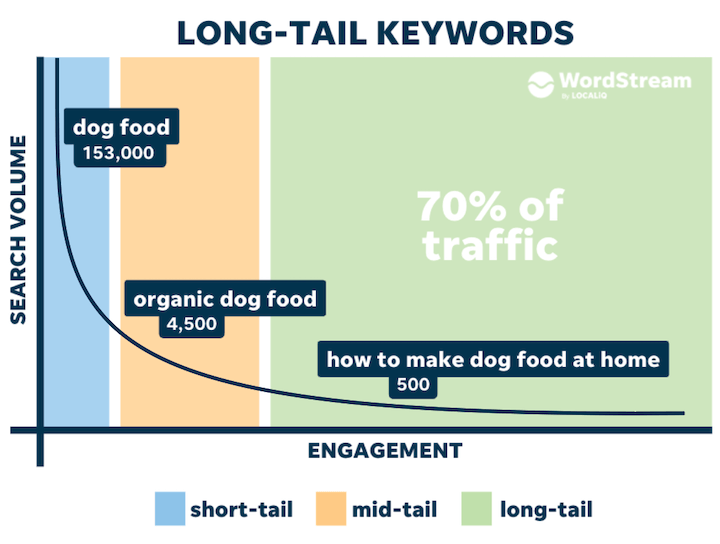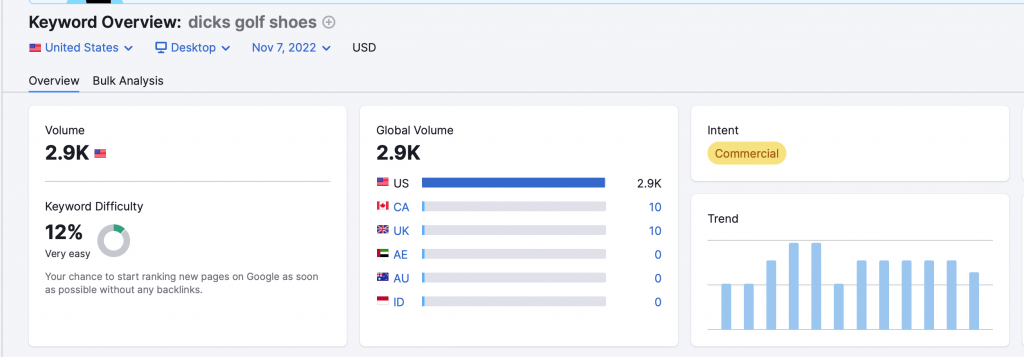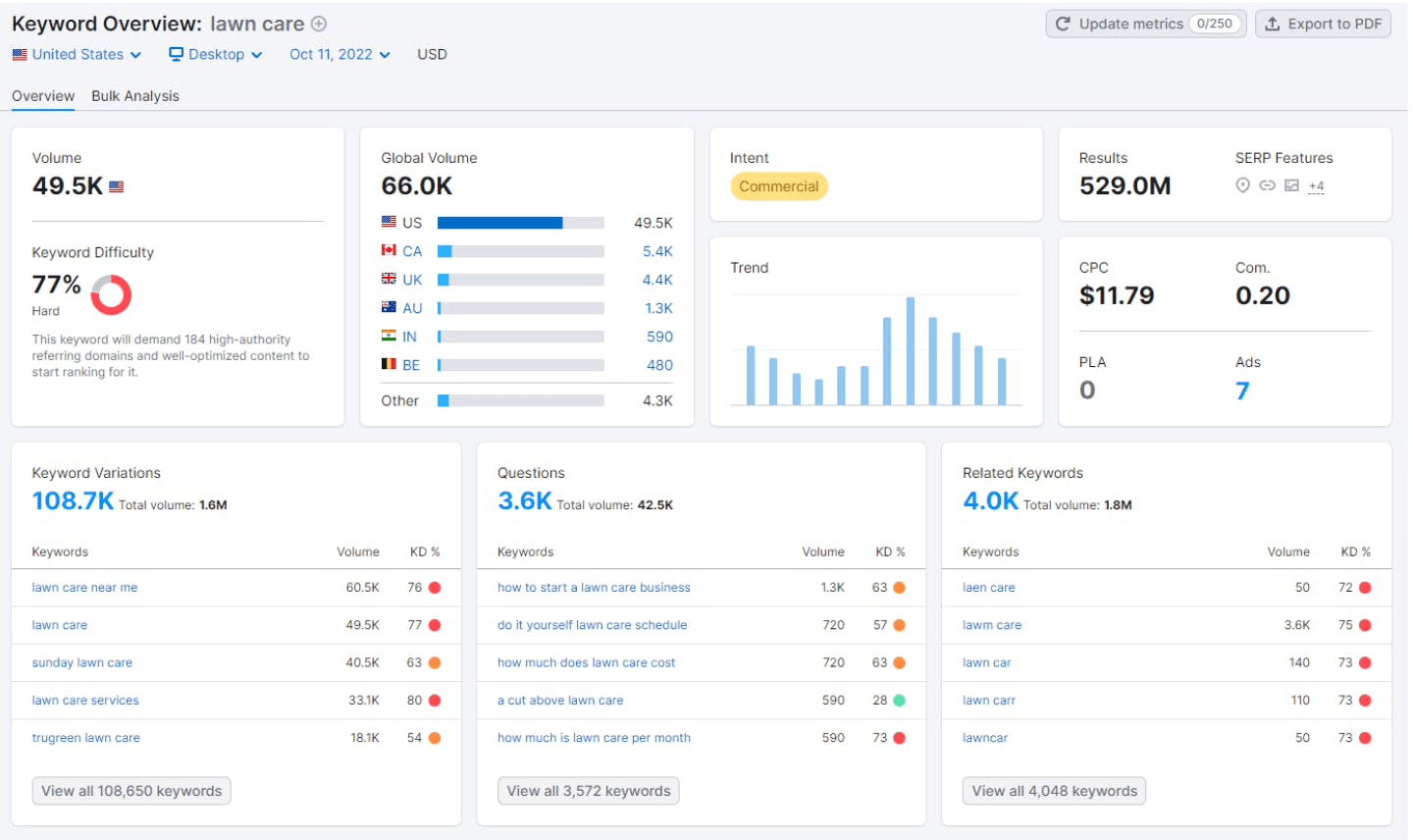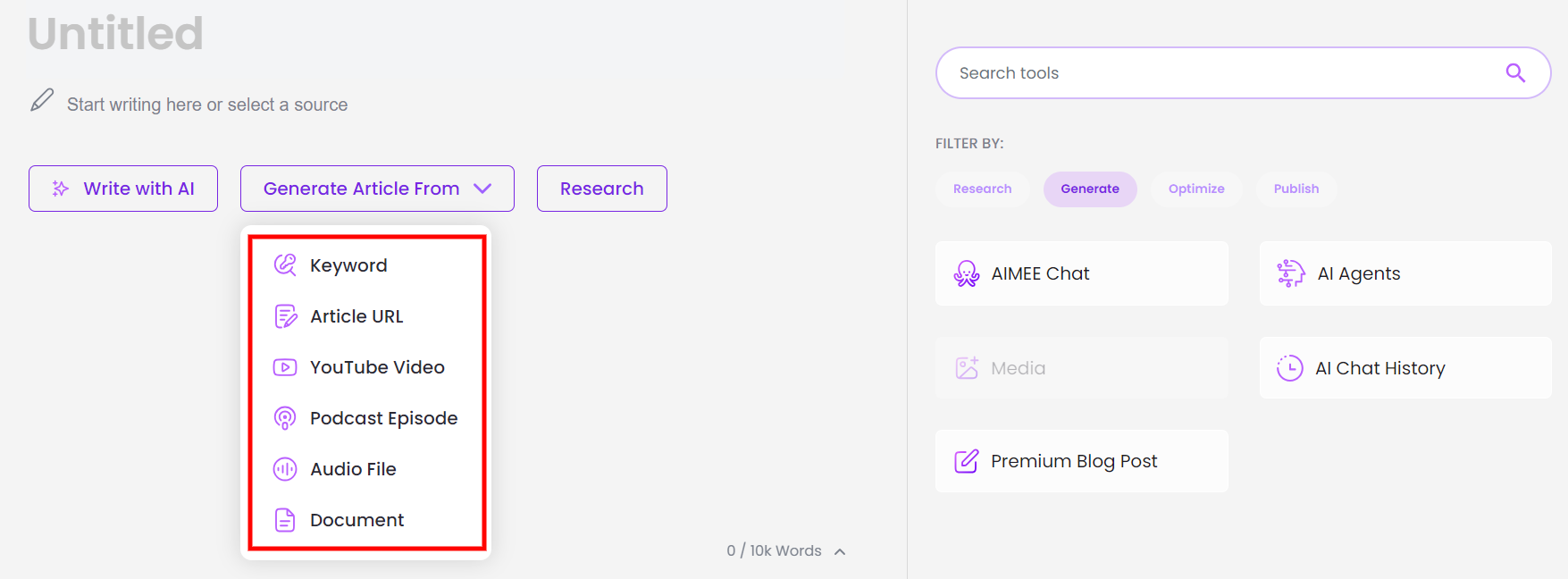Every professional SEO knows how hard it is to find low competition keywords, especially those that have high traffic potential. That’s because everyone is searching for them.
If you run a small website with low authority, low-competition keywords are your best bet for generating traffic. But only if you can find them!
In this article, you will learn how to find low competition keywords with high traffic potential. Let’s look at the entire process, including why these keywords should be your focus.
What Are Low Competition Keywords?
Low competition keywords are search terms that not many websites are targeting directly. These keywords are the easiest to rank for. The benefits of targeting these keywords include higher search engine rankings (because you can easily beat the competition) to increased traffic (because you’ll rank higher in Google as a result of lower competition).
Low competition keywords are typically long-tail, which means they are usually long phrases or question-type queries — think 3-5 words long versus 1-2. Even though they often have fewer searches than high-traffic ones, these keywords have a more defined scope and bring in more qualified traffic.

Image from Wordstream
Rather than attempting to out-compete larger websites for highly competitive terms such as “pet supplies,” targeting low-competition keywords can give you the edge you need.
For example, if you’re selling pet products online, you might opt for a keyword like “dog grooming supplies” which has less search volume but still brings in quality leads who are searching for specific items related to their needs. By targeting less competitive keywords, you can gain a strategic edge over other businesses and ensure that your content gets noticed.
Less competitive keywords can be a boon for content marketing and SEO campaigns, providing an avenue to reach a wider audience with less effort.
But even though they are not as competitive as high search volume keywords, you are not the only person searching for low-competition keywords. So you will have to be intentional about how you research them. The “publish and pray” approach just does not work.
However, the process I will show you today works.
How to Find Low Competition Keywords with High Traffic
Keyword research is quite easy to get wrong, especially the competition metric. It’s easy to assume you have hit pay dirt with your research when you actually haven’t, especially if you’re not working with the right, up-to-date data.
When we talk about “competition,” we mean the difficulty of ranking for a specific keyword.
The more difficult a keyword is to rank for, the more competitive it is.
Most SEO tools like Ahrefs, Semrush, and Ubersuggest call this metric “keyword difficulty“, “KD“, or “SEO difficulty.” BrandWell calls it “ranking difficulty.”
These tools rank keyword difficulty by things like:
- Links
- Domain rating/authority
- Social signals
But these factors are not enough to fully analyze the traffic potential and ranking difficulty of a keyword. Take the keyword “dicks golf shoes”. These are golf shoes from the sporting goods store, Dick’s.

On the surface, the keyword looks golden. Nearly 3k monthly searches with a “very easy” keyword difficulty according to Semrush.
But we have some clues as to why the competition is higher than it seems.
- Search intent: The intent for this keyword is commercial, meaning those who search it are trying to buy golf shoes. Commercial intent doesn’t inherently mean a keyword will be difficult to rank for, but in this case, you can guess the #1 search result (it’s Dick’s website).
- Search volume: 3k searches equate to a lot of traffic, but if a super easy-looking keyword has thousands of searches, be realistic about your ranking prospects.
- Intent (redux): That the search intent is commercial means there is not going to be much content on the page. What it also means is search engines base the top 10 positions less on content and more on pure ranking signals, typically backlinks.
So using keyword difficulty as your only measure for your chances of ranking for a keyword will be very misleading. You must consider the search intent first and foremost. That should tell you the type of content you will have to create to successfully target that keyword.
After that, or to ascertain search intent, it’s crucial that you google the keyword and see what level of competition there is for it. SERP analysis is a far better way to measure keyword difficulty than what a tool would tell you.
The Low Competition Keywords We Recommend
At BrandWell, we recommend the following attributes to judge whether a keyword is worth targeting:
- Low competition: The keyword has a SERP dominated by low DR websites with low backlink profiles.
- Informational intent: The keyword is informational, may be in the form of a question, and is searched by people looking to learn something.
- Low search volume: This depends on your industry, but it could be below 100 or 1,000 searches per month.
Low search volume is an uncommon characteristic of a desirable low-competition keyword. Most people pass on targeting these types of keywords.
Why? Webmasters and businesses typically tend to target higher-volume keywords with traffic potential.
It makes sense. Most people want more traffic coming to their websites.
But high traffic volume isn’t as golden as it seems. Often, broad, high-traffic keywords will bring in lots of people, but those people are less likely to want to buy from you down the road. Their searches are more general, as reflected by the generality of the keywords they search (short, 1-2-word phrases correlate to curious, non-commital browsing).
On the other hand, if you target the right low-competition keywords with good content, they have the potential to bring in targeted, qualified traffic (i.e., people who are more ready to buy) and might even rank for and bring in traffic from higher search volume keywords down the road.
Plus, not all low search volume keywords are as they seem. SEO tools might even record a keyword as having zero traffic when that’s not the case.
What you also want to do is compound your returns by publishing a lot of low-volume targeted content on a certain topic. The more content you publish and are able to rank for, the more your topical authority grows.
The Secret to Finding Good Low Competition Keywords
The secret to quickly ranking and driving traffic to your website is answering questions. These are questions your target audience is asking.
Sure, you can manually search Google and review the “People Also Ask” section, or use tools like AnswerThePublic and find questions people are asking that way.
But what I’m going to show you today makes this whole process a breeze. All you need is your preferred keyword research tool that allows you to export your keywords.
Ok, now onto finding those low competition keyword questions, which will be the most important SOP you’ll need for your SEO efforts.
Step 1: Find All the Best Keywords
First things first, fire up your keyword research tool and input your primary topic. I call this the “Seed” keyword.
Let’s say you have a website around landscaping or lawn care. You would simply input “lawn care”:

In the middle, you see a section for “Questions”. There are 3,572 questions people are typing into Google. These are long-tail keywords.
Click “View all 3,572 keywords.” On the next page, export this entire list to a spreadsheet.
You could do another search for “landscaping”, another for “mowing”, and another for “gardening” if you wanted to expand on the total keywords available to you.
Just merge them all into one spreadsheet and remove duplicates.
Step 2: Sort the Keywords
Next, you want to create two additional worksheets in your spreadsheet. You can label them something like “No Comp” and another for “Zero Search.”
Take the top row from the main worksheet and add it to each of these two sheets.
On the main worksheet with all the keywords, sort by the Keyword Difficulty column. Highest to lowest.
Scroll down to where the difficulty is empty and grab ALL the remaining keywords.

Now,
- Cut that list and place them into the “No Comp” tab.
- Then, sort the “No Comp” tab by the Volume column. Highest to lowest.
- Take all the keywords with 0 Volume and put that into the “Zero Search” tab.
The “Secret” of Zero-Search, Low Competition Keywords
If you have a brand new website, I would recommend starting on those “Zero Search” keywords.
These are keywords that show up in keyword tools and in Google’s People Also Ask. Go through them to filter out any obscure ones.
SEO research tools may report “zero” search volume, but it is more likely that there just isn’t enough data for it. These low-competition keywords absolutely can bring in traffic.

We have tested this strategy with a post we published that targets the keyword “is content marketing the same as copywriting?”, which was and is still a zero-search, low-competition keyword.
It was indexed two and a half weeks ago and is now on page one for that term with 11 impressions.
The post has now settled on position two on the SERP, where it is mixing it up with such players as Forbes (DA95), Contently (DA84), and WebFx (DA78). Although we are growing rapidly, we are a DA74 website yet easily competing with all these bigger players.
But more importantly, the post now also ranks for 10 other terms that have search volume according to Google Search Console. The post has over 4,000 impressions already in search results.
It’s a great platform to build on. With re-optimization, it could bring in even more traffic than it’s bringing right now, as it ranks just outside the top 10 for “what is the difference between content marketing and copywriting.”
All from a “Zero Search” keyword that we auto-published without any editing just to use as an example!
What About “No Competition” Keywords?
But the real money is in that “No Comp” tab in your spreadsheet. If you have some domain authority, I recommend starting there.
Those all have known search volume with zero competition. In this example, we end up with nearly 700 keywords.
These are awesome top-of-funnel keywords that you can get indexed for and rank on page one within a matter of days or weeks.
One caveat: We’re going to be honest here. If your niche is highly competitive and your keyword tool shows a keyword as having no competition, there is usually a reason why your competition is avoiding it. Or the data your tool is using is not up-to-date.
To be sure, search the keyword in Google and check the ranking sites to see if any of them have the keyword in the title. If you find ranking pages that contain the keyword in the title, then it is not a “no competition” or low competition keyword.
Ideally, you want to target low-competition keywords because your competitors have already validated them for you. The only reason they aren’t as competitive is that they don’t get as many searches.
Final Step – Have BrandWell Write All the Content for Your Low Competition Keywords
If you’re a site publisher, business owner, or agency, writing a ton of content is difficult. You have to:
- Source good writers.
- Make sure the content is optimized for search.
- Develop a process that continuously pumps out content.
It’s a ton of work!
It’s these problems that BrandWell solves. Our long-form content writer, RankWell, creates a full, SEO-optimized article from a single keyword or URL.

You don’t even have to subscribe to a separate tool like Semrush or Ahrefs. RankWell now has a keyword research tool right inside the app with the same metrics for search volume and keyword difficulty.

Enter your seed keyword into our AI machine, choose low-competition keywords from the list, hit “Create Content” and a few minutes later — BAM! — up to 3,000 words of unique content on each topic.
Get Much-Needed SERP Traction with Low Competition Keywords
Targeting high search volume when you have not yet built enough topical authority can cause frustration from articles that simply don’t rank for anything. If your website doesn’t rank for anything, you won’t get any traffic, which can be downright demoralizing.
What’s the solution?
Target low-competition keywords — keywords for which you have realistic chances of winning in the SERPs. Though they won’t drive multitudes of searchers to your website, the little traffic they bring is usually highly relevant, which equals higher conversion potential.
Don’t discount these little SEO gems that are yours for the taking — and now you know how. 💥




